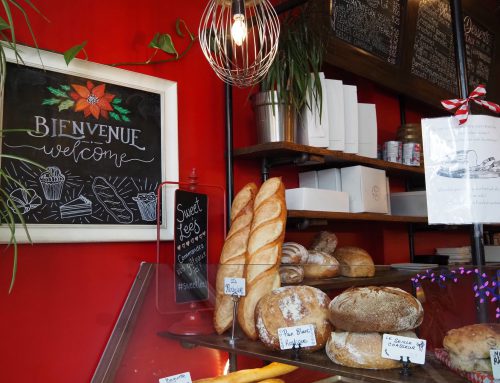Words and Photography: Shakti Langlois Ortega
Racines bookstore is generally closed on Fridays, but on this Friday its owner, Gabriella Garbeau, better known as Gabriella Kinte, is hard at work preparing for an upcoming exhibition.
Along the walls of the narrow shop located on Henri-Bourassa St. in Montreal-North, hundreds of books, new and used alike are neatly stacked on large shelves. All have something in common: they are all written about people of colour.
“Our objective is to showcase all the authors and artists described as what we commonly call racialized people,” Kinte said in French during a recent interview.
“[Racines] has an anti-racist objective,” Kinte said. “If you want to read Dany Laferrière it’s easy [to find his books in many bookstores], but if you want to read other authors, like contemporary African authors, for example, it’s more difficult.”
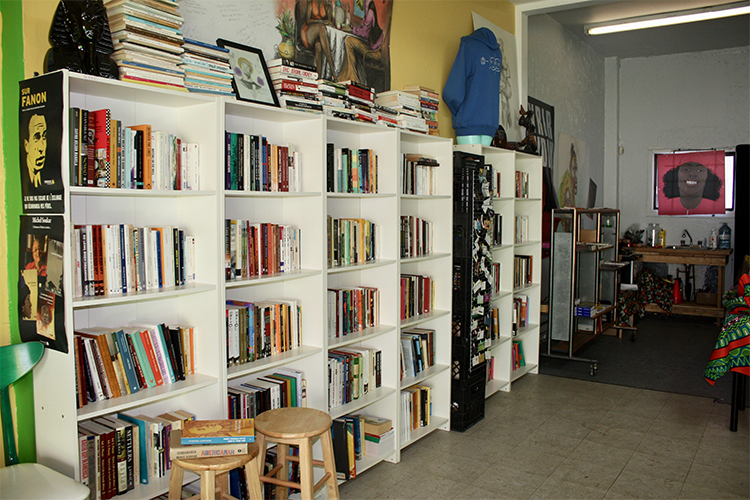
The selection of books at Racines highlights the work of local authors from racialized communities.
Racines—named in reference to the record-breaking TV miniseries “Roots: The Saga of an American Family,” adapted from Alex Haley’s 1976 novel—is a space for children and adults to gather, mingle, learn about history and educate themselves, explained the shop owner, who adopted the last name “Kinte” in honor of the series’ lead character Kunta Kinte.
Kinte studied social work, and worked first with kids and then women. However, when she became pregnant with her son, who is now one and a half years old, she began to be particularly concerned with the lack of representation in books. “It’s difficult to find books with little black boys,” she said.“Our objective is to showcase all the authors and artists described as what we commonly call racialized people.”
“It’s important for our youth to have positive leaders, positive images, and to be reinforced positively. It’s interesting when these people [in books] look like them and send them positive messages,” she said.
Growing up, she recalls having a hard time finding interest in books, in part because she could not relate to them. “One way or another, everyone that I know came to the realization, as a child, that the books that were available had characters that didn’t look like us.”
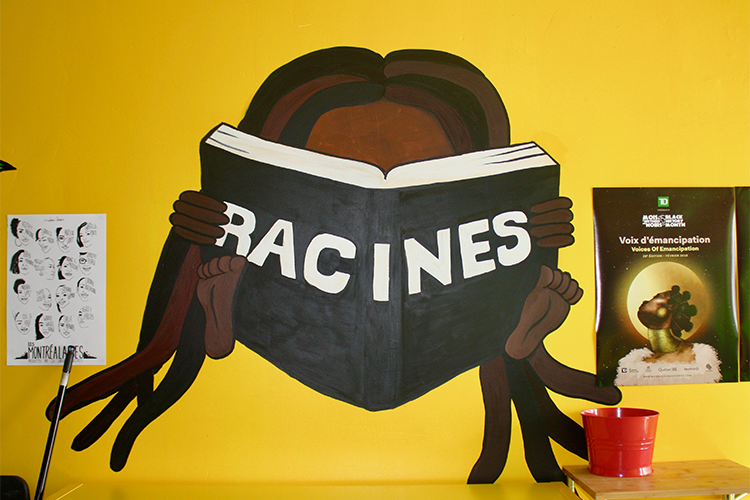
Racines bookstore sells books by and about racialized people.
In response to her own experience, Kinte launched the Racines bookstore with a crowdfunding campaign, which she said drew a large amount of support from the entire community.
“They say it takes a village to raise a child. I think Montreal-North is like a village. It’s a neighborhood where people are very supportive. ”
Over a year later, Kinte believes Racines has become a space, outside of home and work, where people feel safe and welcomed. There is a reading corner inside the store where customers can cozy up on a fluffy couch. On the opposite side of the room, an eye-catching variety of illustrated books and toys make up the children’s corner.
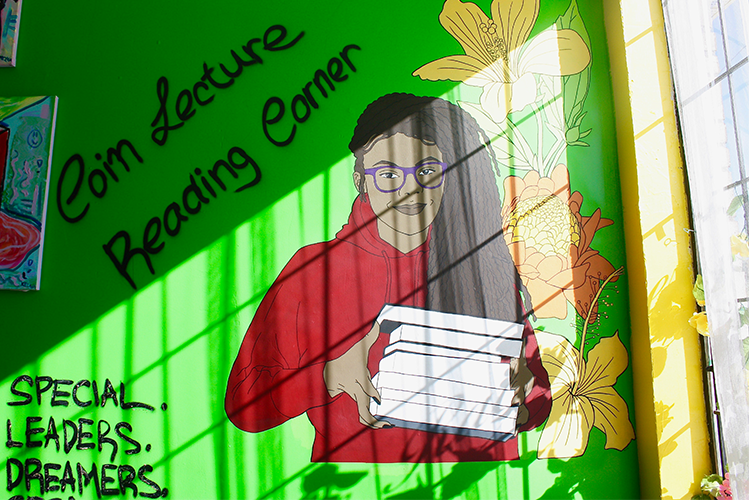
Artwork in Racines bookstore celebrates diversity.
“Reading can be intimidating,” Kinte said, “so we approach it a different way.” Aside from being a bookstore, Racines is a community gathering space. Every week, Racines hosts a variety of activities for all ages—book launches, Creole classes, Haitian history classes, discussions, and workshops.
When she started the business, Kinte did not have a clear long-term business plan, but one thing was certain, her bookstore would be located in Montreal-North. “I find that working-class neighbourhoods have little investment in everything surrounding culture,” she said. While some literacy programs and campaigns are already in place in the area, Kinte believes they don’t always reach certain marginalized communities who could benefit from them.
“I think one of the advantages we have is that some people who come to [Racines] don’t necessarily go to the other places. We have a space where people can just come and enjoy,” she said.
Kinte’s hard work was honored at last year’s Gala Dynastie — the closing event of Black History Month, which for the past three years has celebrated Montreal’s black talent — when she was chosen to be one of the gala’s twelve laureates. She was also nominated in the bloggers’ category for her blog “Tout le Hood en Parle,” where she and her team shed light on stories of injustices, testimonies, and discussions about racialized people.
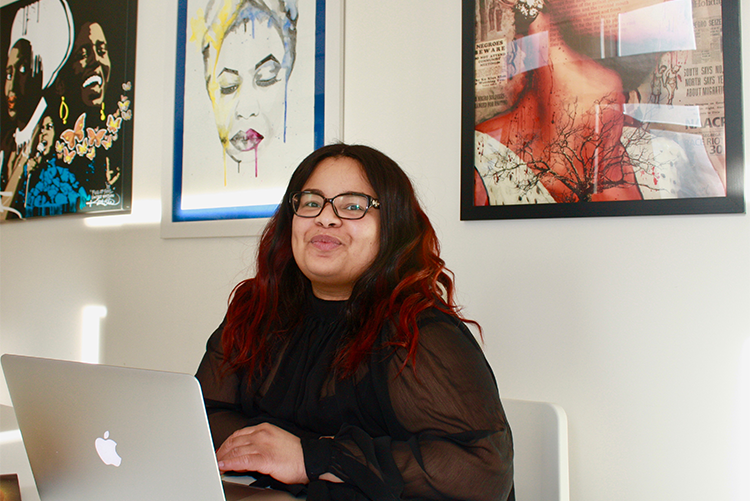
Claire-Anse St-Éloi is the assistant coordinator of the Round Table for Black History Month.
“She was a key person we wanted to highlight. Not only does she touch on social issues that affect the black community, she opened a bookstore in Montreal-North where kids have access to a safe space. The fact that she’s an Afro-feminist militant was also important for us,” said Claire-Anse St-Éloi, assistant coordinator of the Round Table for Black History Month, a close partner of the foundation that organizes the gala.
“It felt good to have recognition from my peers, and that they saw that the work we do is important, and that we have a reason to be there. A little tap on the shoulder helps to keep going,” said Kinte who is was on the jury at this year’s gala.
At the end of the day, Kinte says it’s the little things that count the most. “When a child says ‘Ah this one looks like me!’ it makes me smile. Or when someone says ‘Ah, I was looking for this book, I couldn’t find it anywhere!’ All these small moments. All the opportunities to exchange. All the couples that were formed after meeting at the bookstore. All these little things are achievements.”

Racines bookstore is on Henri-Bourassa street in Montreal-North.



